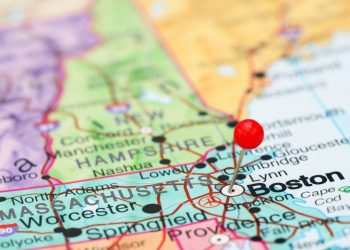 RISMEDIA, August 1, 2009-(MCT)-Paper or plastic? Or neither?
RISMEDIA, August 1, 2009-(MCT)-Paper or plastic? Or neither?
Next month, voters will decide whether to keep or reject an ordinance passed last year by the Seattle City Council that would charge shoppers 20 cents for every new disposable bag they carry out of supermarkets, drugstores and convenience stores.
The ordinance was meant to take effect this year, but opposition forces quickly collected enough signatures to put a referendum-Referendum 1-before voters in the Aug. 18 primary.
The goal of the fee is an ambitious one: to change people’s behavior. It aims to get consumers to cart their cheeses and canned vegetables home in recycled grocery bags or reusable totes, reducing the waste produced by both disposable plastic and paper bags.
“For a lot of people, this is a no-brainer,” said Rob Gala, spokesman for the Seattle Green Bag Campaign. “They understand the economic inefficiency of disposable products.”
Opponents call the fee misguided and say it will have an opposite effect-that as the ubiquitous plastic bags are phased out, people who reuse them at home to line their wastebaskets, say, or pick up dog doo-will instead buy sturdier bags that are even worse for the environment.
“It’s a solution looking for a problem,” said Adam Parmer of the Coalition to Stop the Seattle Bag Tax. The well-funded coalition consists of 7-Eleven Inc. and the Progressive Bag Affiliates of the American Chemistry Council, whose members include Dow Chemical and Exxon Mobil. Even accounting for a 70% drop in disposable-bag use estimated by the fee supporters, Parmer argued that the measure could end up costing Seattle residents $15 million a year in fees. He also noted a 2007 city-commissioned survey in which 91% of respondents said they already recycled or reused their plastic carryout bags.
“So why are we going after this?” he asked.
Worldwide, plastic bags have been discouraged or banned outright in France, Germany, India and China. Seattle’s approach was inspired by Ireland, where lawmakers imposed a 20-cent charge, then raised it to 33 cents before habits changed.
If voters approve the Seattle ordinance, the city would become the first in the nation to target both plastic and paper.
Small retailers would retain the entire 20 cents, while stores grossing more than $1 million annually would keep 5 cents, with the rest funding city efforts to promote reusable bags and other environmentally minded programs.
Passage could also place Seattle at the forefront of the national green movement.
Other cities have already taken a variety of steps to limit disposable-bag use.
In 2007, San Francisco became the first major U.S. city to ban petroleum-based plastic bags, and a similar ban will take effect a year from now in Los Angeles.
Last month, Washington, D.C., passed a 5-cent fee on plastic bags, while locally, Edmonds, Wash., voted to ban them pending an environmental review to be completed later this month.
Similar measures are being considered in Baltimore, Santa Monica, Calif., and New Jersey, while other cities and states, including Boston, New York City, Rhode Island and Delaware, are pursuing recycling over bans.
When bags are recycled, that’s a good thing, but it’s not as good as reduction in the first place,” said Seattle City Council President Richard Conlin, who proposed the fee last year along with Mayor Greg Nickels.
While the success of programs elsewhere has been hotly debated, Seattle’s approach looks promising, said Bob Lilienfeld, editor of The ULS-for Use Less Stuff-Report, a national newsletter urging conservation. “Seattle recognizes the issue isn’t paper versus plastic,” Lilienfeld said. “If you want to deal with bags, you’ve got to deal with bags.”
Fee supporters see themselves as the grass-roots David up against the coalition’s Goliath of big business, whose funding-some $250,000-has for the most part come from the Virginia-based American Chemistry Council.
In other cities, plastic-bag manufacturers have derailed or delayed some bag bans or fees by arguing that because consumers may switch to bags that leave bigger carbon footprints, an environmental review must be done before a ban or fee can be imposed.
In Seattle, Parmer said, the campaign has spent most of its funds on gathering signatures for the referendum and conducting focus groups. He otherwise won’t discuss campaign strategy here except to say: “We’re looking forward to giving Seattle voters the facts behind this measure so they can make an informed decision.”
The volunteer-fueled Green Bag Campaign, wielding less than $50,000, has gained increasing support at local festivals and via its Facebook and Twitter pages. Gala, the Seattle Green Bag Campaign spokesman, said the campaign, which will focus on direct mail and literature drops, faces a challenge given the opposition’s deeper pockets and the current financial struggles of environmental groups that otherwise might have been able to help. “A lot of organizations are just trying to stay afloat,” he said. “It’s almost been building a campaign from scratch.”
After voicing early objections to the fee, Washington grocers have stayed on the sidelines, encouraging shoppers to reuse old bags and donating reusable totes to agencies that serve low-income people, who some say would be unduly burdened by the 20-cent-per-bag fee.
Concerns about cost proved effective in New York, where bag fees were shot down after critics called it a regressive tax.
But Gala pointed out that shoppers can avoid the fee by bringing in totes or their old grocery sacks. Seattle also has offered to provide one free reusable tote to each household.
In May, responding to a request from Nickels, Chicago-based ReuseableBags.com announced it would donate 1% of its sales of durable shopping containers to the pro-fee campaign. “This is the most important piece of legislation we’ve seen,” the company states on its website.
Gala said a “no” vote could have a chilling effect on other cities.
Parmer doesn’t think so. “I think it will show that you can be environmentally green but also sensible,” he said.
(c) 2009, The Seattle Times.
Distributed by McClatchy-Tribune Information Services.










